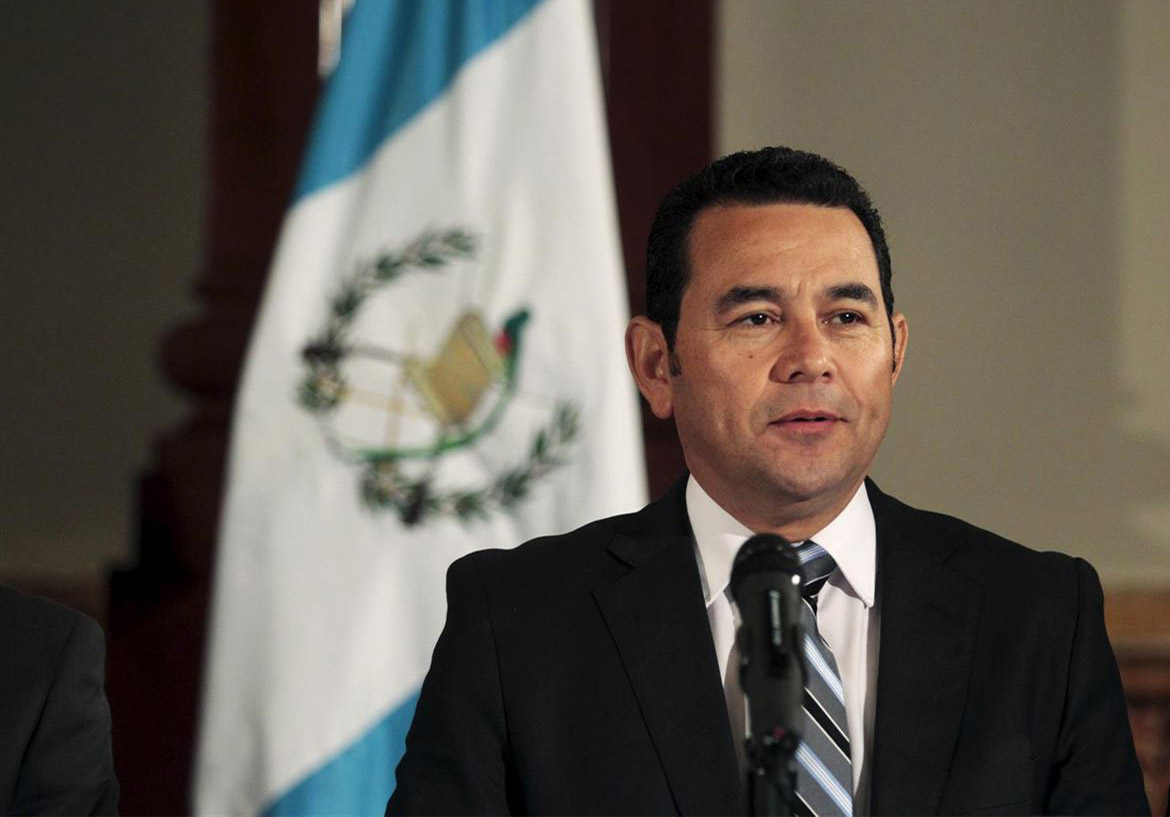Guatemala’s Congress should immediately remove obstacles to investigation and accountability of President Jimmy Morales (photo) and other public officials for alleged violations of campaign finance rules and corruption, the ICJ said today.
The ICJ also called on President Morales to cease efforts to impede the effective functioning of the United Nations mandated International Commission against Impunity in Guatemala (CICIG).
“Guatemala’s president and some members of Congress are obstructing justice by abusing their authority to avoid investigations for corruption and block the important work carried out by the Attorney General, with CICIG’s assistance,” said Sam Zarifi, ICJ’s Secretary General, just returned from a visit to the country.
“Guatemala, with CICIG’s assistance, has witnessed important progress in the fight against corruption and impunity in recent years, and Congress should be making sure that this trend continues,” he added.
The Congress voted on September 21 to reject the request by Attorney General Thelma Aldana and Ivan Velasquez, Commissioner of CICIG, to strip President Morales of Constitutional immunity he enjoys as president, in connection to allegations that his political party failed to report more than $800,000 in campaign financing.
But the Congressional vote fell short of the threshold of 105 votes needed to reach the necessary two-thirds of Congress needed to reach a final decision and thus can be reconsidered.
On September 13, Congress voted to revise the country’s criminal code by removing Secretary Generals of political parties from accountability for violations of electoral laws (instead limiting accountability to accountants) and to commute the sentences of those already convicted of a number of serious crimes, including corruption, trafficking of persons, and sexual abuse.
The legislators rescinded the vote after two days of nationwide public demonstrations and a decision of the country’s Constitutional Court to suspend the law’s application.
The Guatemalan Constitutional Court suspended the revisions in response to a writ of amparo and characterized Congress’ revisions to the criminal code as “a threat that, in case of being implemented, could cause irreparable damage to the judicial system”.
“The Constitutional Court’s speedy action avoided a massive blow to the fight for accountability in Guatemala, because if the law had gone into effect for even one hour, it would have provided a legal basis for politicians convicted on corruption charges to demand release or commutation of their sentences,” Zarifi said.
Congress’s actions followed an attempt by President Morales to expel CICIG’s Commissioner Velasquez, as persona non grata and to revise CICIG’s mandate, in an apparent bid to block investigations into his alleged wrongdoing.
“Since CICIG was formed in December 2006 at the request of the Guatemalan government, it has worked closely with the country’s Attorney General to improve accountability, and its impact has been undeniably positive,” Zarifi said.
“This is a model of international support for national accountability mechanisms that should be studied and emulated around the world; its continued operation is therefore of interest not just to Guatemala and the region but to global efforts to combat impunity,” he added.
The ICJ called on the Guatemalan government to comply with its international legal obligations as a State party to the 2004 United Nations Convention Against Corruption and the 1996 Inter-American Convention Against Corruption.
Background
Article 30(2) of the UN Convention Against Corruption calls on State Party to strike “an appropriate balance between any immunities or jurisdictional privileges accorded to its public officials for the performance of their functions and the possibility, when necessary, of effectively investigating, prosecuting and adjudicating offences established in accordance with this Convention.”
Article 30(3) demands States “to ensure that any discretionary legal powers under its domestic law relating to the prosecution of persons for offences established in accordance with this Convention are exercised to maximize the effectiveness of law enforcement measures in respect of those offences and with due regard to the need to deter the commission of such offences.”
Contact:
Sam Zarifi, ICJ Secretary General, t: +41 79 726 44 15 ; e: sam.zarifi@icj.org




